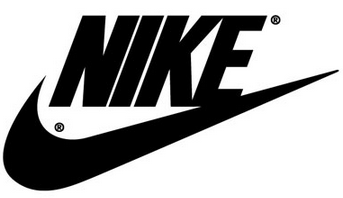Pratt & Whitney Canada Corp. (PWC), a Canadian subsidiary of the Connecticut-based defense contractor United Technologies Corporation (UTC), pleaded guilty to violating the Arms Export Control Act and making false statements in connection with its illegal export to China of U.S.-origin military software used in the development of China’s first modern military attack helicopter, the Z-10.
In addition, UTC, its U.S.-based subsidiary Hamilton Sundstrand Corporation (HSC) and PWC have all agreed to pay more than $75 million as part of a global settlement with the Justice Department and State Department in connection with the China arms export violations and for making false and belated disclosures to the U.S. government about these illegal exports. Roughly $20.7 million of this sum is to be paid to the Justice Department. The remaining $55 million is payable to the State Department as part of a separate consent agreement to resolve outstanding export issues, including those related to the Z-10. Up to $20 million of this penalty can be suspended if applied by UTC to remedial compliance measures. As part of the settlement, the companies admitted conduct set forth in a stipulated and publicly filed statement of facts.
Today’s actions were announced by David B. Fein, U.S. Attorney for the District of Connecticut; Lisa Monaco, Assistant Attorney General for National Security; John Morton, Director of U.S. Immigration and Customs Enforcement (ICE); Ed Bradley, Special Agent in Charge of the Northeast Field Office of the Defense Criminal Investigative Service (DCIS); Kimberly K. Mertz, Special Agent in Charge of the FBI New Haven Division; David Mills, Department of Commerce Assistant Secretary for Export Enforcement; and Andrew J. Shapiro, Assistant Secretary of State for Political-Military Affairs.
The Charges
Today in the District of Connecticut, the Justice Department filed a three-count criminal information charging UTC, PWC and HSC. Count One charges PWC with violating the Arms Export Control Act in connection with the illegal export of defense articles to China for the Z-10 helicopter. Count Two charges PWC, UTC and HSC with making false statements to the U.S. government in their belated disclosures relating to the illegal exports. Count Three charges PWC and HSC with failure to timely inform the U.S. government of exports of defense articles to China.
While PWC has pleaded guilty to Counts One and Two, the Justice Department has recommended that prosecution of UTC and HSC on Count Two, and PWC and HSC on Count Three be deferred for two years, provided the companies abide by the terms of a deferred prosecution agreement with the Justice Department. As part of the agreement, the companies must pay $75 million and retain an Independent Monitor to monitor and assess their compliance with export laws for the next two years.
The Export Scheme
Since 1989, the United States has imposed a prohibition upon the export to China of all U.S. defense articles and associated technical data as a result of the conduct in June 1989 at Tiananmen Square by the military of the People’s Republic of China. In February 1990, the U.S. Congress imposed a prohibition upon licenses or approvals for the export of defense articles to the People’s Republic of China. In codifying the embargo, Congress specifically named helicopters for inclusion in the ban.
Dating back to the 1980s, China sought to develop a military attack helicopter. Beginning in the 1990s, after Congress had imposed the prohibition on exports to China, China sought to develop its attack helicopter under the guise of a civilian medium helicopter program in order to secure Western assistance. The Z-10, developed with assistance from Western suppliers, is China’s first modern military attack helicopter.
During the development phases of China’s Z-10 program, each Z-10 helicopter was powered by engines supplied by PWC. PWC delivered 10 of these development engines to China in 2001 and 2002. Despite the military nature of the Z-10 helicopter, PWC determined on its own that these development engines for the Z-10 did not constitute “defense articles,” requiring a U.S. export license, because they were identical to those engines PWC was already supplying China for a commercial helicopter.
Because the Electronic Engine Control software, made by HSC in the United States to test and operate the PWC engines, was modified for a military helicopter application, it was a defense article and required a U.S. export license. Still, PWC knowingly and willfully caused this software to be exported to China for the Z-10 without any U.S. export license. In 2002 and 2003, PWC caused six versions of the military software to be illegally exported from HSC in the United States to PWC in Canada, and then to China, where it was used in the PWC engines for the Z-10.
According to court documents, PWC knew from the start of the Z-10 project in 2000 that the Chinese were developing an attack helicopter and that supplying it with U.S.-origin components would be illegal. When the Chinese claimed that a civil version of the helicopter would be developed in parallel, PWC marketing personnel expressed skepticism internally about the “sudden appearance” of the civil program, the timing of which they questioned as “real or imagined.” PWC nevertheless saw an opening for PWC “to insist on exclusivity in [the] civil version of this helicopter,” and stated that the Chinese would “no longer make reference to the military program.” PWC failed to notify UTC or HSC about the attack helicopter until years later and purposely turned a blind eye to the helicopter’s military application.
HSC in the United States had believed it was providing its software to PWC for a civilian helicopter in China, based on claims from PWC. By early 2004, HSC learned there might an export problem and stopped working on the Z-10 project. UTC also began to ask PWC about the exports to China for the Z-10. Regardless, PWC on its own modified the software and continued to export it to China through June 2005.
According to court documents, PWC’s illegal conduct was driven by profit. PWC anticipated that its work on the Z-10 military attack helicopter in China would open the door to a far more lucrative civilian helicopter market in China, which according to PWC estimates, was potentially worth as much as $2 billion to PWC.
Belated and False Disclosures to U.S. Government
These companies failed to disclose to the U.S. government the illegal exports to China for several years and only did so after an investor group queried UTC in early 2006 about whether PWC’s role in China’s Z-10 attack helicopter might violate U.S. laws. The companies then made an initial disclosure to the State Department in July 2006, with follow-up submissions in August and September 2006.
The 2006 disclosures contained numerous false statements. Among other things, the companies falsely asserted that they were unaware until 2003 or 2004 that the Z-10 program involved a military helicopter. In fact, by the time of the disclosures, all three companies were aware that PWC officials knew at the project’s inception in 2000 that the Z-10 program involved an attack helicopter.
Today, the Z-10 helicopter is in production and initial batches were delivered to the People’s Liberation Army of China in 2009 and 2010. The primary mission of the Z-10 is anti-armor and battlefield interdiction. Weapons of the Z-10 have included 30 mm cannons, anti-tank guided missiles, air-to-air missiles and unguided rockets.
“PWC exported controlled U.S. technology to China, knowing it would be used in the development of a military attack helicopter in violation of the U.S. arms embargo with China,” said U.S. Attorney Fein. “PWC took what it described internally as a ‘calculated risk,’ because it wanted to become the exclusive supplier for a civil helicopter market in China with projected revenues of up to two billion dollars. Several years after the violations were known, UTC, HSC and PWC disclosed the violations to the government and made false statements in doing so. The guilty pleas by PWC and the agreement reached with all three companies should send a clear message that any corporation that willfully sends export controlled material to an embargoed nation will be prosecuted and punished, as will those who know about it and fail to make a timely and truthful disclosure.”
“Due in part to the efforts of these companies, China was able to develop its first modern military attack helicopter with restricted U.S. defense technology. As today’s case demonstrates, the Justice Department will spare no effort to hold accountable those who compromise U.S. national security for the sake of profits and then lie about it to the government,” said Assistant Attorney General Monaco. “I thank the agents, analysts and prosecutors who helped bring about this important case.”
“This case is a clear example of how the illegal export of sensitive technology reduces the advantages our military currently possesses,” said ICE Director Morton. “I am hopeful that the conviction of Pratt & Whitney Canada and the substantial penalty levied against United Technologies and its subsidiaries will deter other companies from considering similarly ill-conceived business practices in the future. American military prowess depends on lawful, controlled exports of sensitive technology by U.S. industries and their subsidiaries, which is why ICE will continue its present campaign to aggressively investigate and prosecute criminal violations of U.S. export laws relating to national security.”
“… [These] charges and settlement demonstrate the continued commitment of the Defense Criminal Investigative Service (DCIS) and fellow agencies to protect sensitive U.S. defense technology from being illegally exported,” said DCIS Special Agent in Charge Bradley. “Safeguarding our military technology is vital to our nation’s defense and the protection of our war fighters both home and abroad. We know that foreign governments are actively seeking U.S. defense technology for their own development. Thwarting these efforts is a top priority for DCIS. I applaud the agents and prosecutors who worked tirelessly to bring about this result.”
“Preventing the loss of critical U.S. information and technologies is one of the most important investigative priorities of the FBI,” said FBI Special Agent in Charge Mertz. “Our adversaries routinely target sensitive research and development data and intellectual property from universities, government agencies, manufacturers, and defense contractors. While the thefts associated with economic espionage and illegal technology transfers may not capture the same level of attention as a terrorist incident, the costs to the U.S. economy and our national security are substantial. Violations of the Arms Export Control Act put our nation at risk and the FBI, along with all of our federal agency partners, are committed to ensuring that embargoed technologies do not fall into the wrong hands. Those who violate these laws should expect to be held accountable. An important part of the FBI’s strategy in this area involves the development of strategic partnerships. In that regard, the FBI looks forward to future coordination with UTC and its subsidiaries to strengthen information sharing and counterintelligence awareness.”
“Protecting national security is our top priority,” said Assistant Secretary of Commerce for Export Enforcement Mills. “Today’s action sends a clear signal that federal law enforcement agencies will work together diligently to prevent U.S. technology from falling into the wrong hands.”
Assistant Secretary Shapiro, of the State Department’s Bureau of Political and Military Affairs, said, “Today’s $75 million settlement with United Technologies Corporation sends a clear message: willful violators of U.S. arms export control regulations will be pursued and punished. The successful resolution of this case is the byproduct of the tireless work of our compliance officers and highlights the relentless commitment of the State Department to protect sensitive American technologies from being illegally transferred.”


